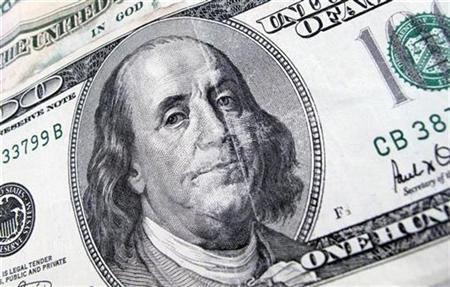Why there will be no Treasury crisis

There are plenty of concerns surrounding U.S. Treasuries, yet a Treasury crisis doesn't seem to be happening.
First, Treasury yields remain extremely low by historic standards. The 10-year Treasury yield of 3.25 percent compares with 5 percent in the middle of 2007, 6 percent in the beginning of 2000, and 15 percent in the middle of 1981.
So even if yields go up several percentage points, it is hardly unsustainable and will not bankrupt the U.S. government.
The data points listed above also show that Treasury yields are actually lower than pre-crisis levels, so investors have continued to buy them. Foreign holdings of Treasuries have increased from $3.57 trillion in September 2009 to $4.26 trillion in September 2010. Furthermore, holdings of U.S. government securities at U.S. banks have jumped from $1.4 trillion in September 2009 to $1.6 trillion in September 2010.
But Treasury bears are still worried about the high public debt, politicians' inability to agree on a credible plan to reduce it, and the global backlash against the Federal Reserve's second round of quantitative easing, which might lead to the foreign selling of Treasuries.
While these concerns are valid -- and do make Treasuries unattractive in these regards -- Treasuries remain in-demand because there are no substitutes.
What assets compete with Treasuries? Government debt from other countries, private debt, and non-debt assets.
The biggest government borrowers in the world, besides the U.S., are European countries and Japan -- and their debt doesn't exactly look favorable when compared to U.S. debt.
The private sector in the U.S. and Europe are still de-leveraging, meaning they are not borrowing, but are actually paying down their debt.
Nobody's borrowing money even as your interest rates [go to zero] -- government is the only borrower, said Richard Koo, chief economist of Nomura Research Institute, at a Council on Foreign Relations meeting.
So even if large lenders want better borrowers than the U.S. government, they will not find enough of them. Indeed, size and liquidity are key advantages of the U.S. Treasuries market.
Gold -- which some have been touting as an alternative to Treasuries -- lacks those two advantages. Similarly, small countries that are fiscally healthier than the U.S. also have these deficiencies.
The Chinese government has been buying mines around the world, but that, too, has its limitations.
The U.S. stock market certainly rivals the size and liquidity of the Treasuries market, but large institutional investors - - like pension funds and foreign central banks -- can't put all their money in U.S. stocks because as the world has recently seen, their prices can quickly collapse.
Big banks and the Chinese government -- with their trillions of dollars -- simply can't find alternative ways to channel all of their money.
At worst, they will slowly diversified out of Treasuries; this is perhaps what the Chinese are doing. Actually, Treasury bears deeply fear that the Chinese will all of sudden dump their holdings. However, Chinese policy makers are known for their gradualist approach and will almost certainly not do that.
So slowly rising Treasury yields are quite possible, but a full-blown Treasury crisis is highly improbable.
In Japan, the government has been piling up debt for about 20 years.
Koo said Japanese government [bonds were] downgraded... to the level below that of Botswana in Africa. But every time those things happen, [bond yields] jumped up a bit, but a crisis has yet to occur.
Currently, Japanese public debt is close to 200 percent of the GDP by some estimates and Japanese bond bears continue their 20-year tradition of predicting a crisis.
Japan, of course, is different from the United States because a greater percentage of its debt is held domestically. However, large holders of U.S. dollars, foreign and domestic, all have no substitute for Treasuries and will therefore keep buying them.
Email Hao Li hao.li@ibtimes.com
© Copyright IBTimes 2025. All rights reserved.





















